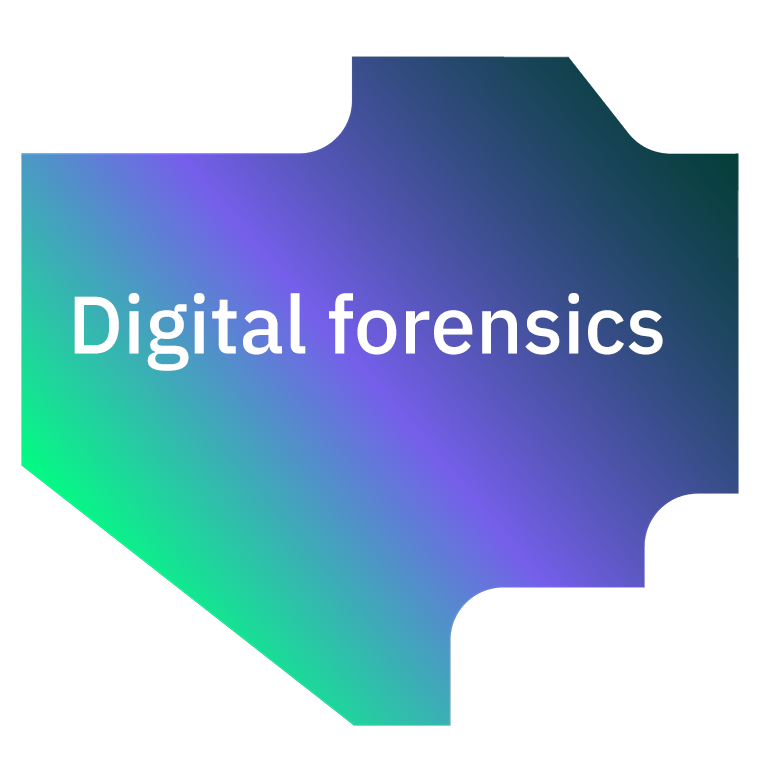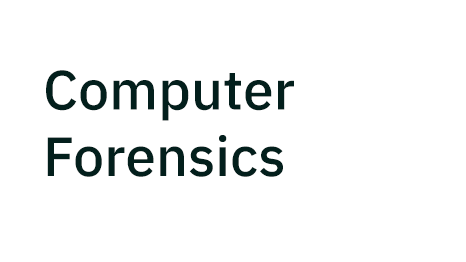
The field of digital forensics is a critical discipline with a pivotal role in cybersecurity. It encompasses the meticulous examination and analysis of digital evidence to unveil, comprehend, and mitigate cybercrime
In our contemporary society, where technology is ubiquitous, digital forensics has grown increasingly vital for investigating a diverse range of cyber incidents, including data breaches, hacking, and electronic fraud. Specialized tools and methodologies are employed by digital forensic experts to recover and scrutinize data from various digital sources, spanning computers, mobile devices, and network logs. Through the reconstruction of digital events and the revelation of malicious activities, digital forensics aids organizations in determining the scope of security breaches, attributing responsibility, and implementing measures to forestall future incidents. Essentially, digital forensics serves as a linchpin in securing digital assets and upholding the integrity of information systems.

Computer forensics stands as a critical component within digital investigations, dedicated to unveiling and scrutinizing evidence extracted from digital devices. This specialized discipline employs sophisticated methodologies and tools to meticulously analyze digital artifacts, files, and system data on computers, facilitating the reconstruction of events, identification of potential security breaches, and detection of cybercrimes. At the forefront of investigating various cyber incidents such as hacking, data breaches, financial fraud, and intellectual property theft, computer forensics empowers forensic experts to navigate file structures, logs, and network activity. This comprehensive examination aids in establishing a profound understanding of the digital landscape, enabling the identification of malicious activities and potential vulnerabilities. Given the dynamic nature of the cybersecurity landscape, computer forensics emerges as indispensable in upholding the integrity of digital evidence, supporting legal proceedings, and enhancing the capabilities of cybersecurity professionals in their pursuit of justice and digital resilience.

Mobile forensics stands as a vital facet of digital investigations, concentrating on the revelation and analysis of digital evidence sourced from mobile devices. This specialized domain employs an array of techniques and tools to extract, scrutinize, and interpret data from smartphones, tablets, and other mobile devices. Its significance is pronounced in the investigation of diverse cybercrimes, encompassing digital fraud, data breaches, and cyberattacks originating from or impacting mobile platforms. Through the meticulous examination of call logs, text messages, application data, and device configurations, investigators can reconstruct timelines, discern patterns of activity, and glean crucial insights pertinent to a case. Mobile forensics is not solely instrumental in resolving cybercrimes but also in addressing legal considerations, preserving the integrity of digital evidence, and upholding the standards of forensic procedures within the swiftly evolving realm of mobile technology.

Multimedia Forensics stands as a pivotal element within digital investigations, concentrating on the analysis of multimedia content encompassing images, audio files, and videos. The primary aim of this discipline is to extract valuable insights from multimedia data while discerning potential manipulations. Utilizing sophisticated techniques such as image analysis, audio fingerprinting, and video forensics, Multimedia Forensics scrutinizes digital media artifacts, intending to affirm the integrity and authenticity of multimedia content. In instances of digital crime, this solution becomes indispensable for verifying the credibility of evidence, identifying tampering or alterations, and tracing the origin of multimedia files. Through the application of these technologies, investigators can derive dependable conclusions from multimedia data, contributing to legal proceedings and ensuring the reliability of digital evidence. In our contemporary world, where multimedia content is pervasive, Multimedia Forensics assumes a crucial role in elevating the precision and trustworthiness of digital investigations.

Computer forensics stands as a critical component within digital investigations, dedicated to unveiling and scrutinizing evidence extracted from digital devices. This specialized discipline employs sophisticated methodologies and tools to meticulously analyze digital artifacts, files, and system data on computers, facilitating the reconstruction of events, identification of potential security breaches, and detection of cybercrimes. At the forefront of investigating various cyber incidents such as hacking, data breaches, financial fraud, and intellectual property theft, computer forensics empowers forensic experts to navigate file structures, logs, and network activity. This comprehensive examination aids in establishing a profound understanding of the digital landscape, enabling the identification of malicious activities and potential vulnerabilities. Given the dynamic nature of the cybersecurity landscape, computer forensics emerges as indispensable in upholding the integrity of digital evidence, supporting legal proceedings, and enhancing the capabilities of cybersecurity professionals in their pursuit of justice and digital resilience.

Computer forensics stands as a critical component within digital investigations, dedicated to unveiling and scrutinizing evidence extracted from digital devices. This specialized discipline employs sophisticated methodologies and tools to meticulously analyze digital artifacts, files, and system data on computers, facilitating the reconstruction of events, identification of potential security breaches, and detection of cybercrimes. At the forefront of investigating various cyber incidents such as hacking, data breaches, financial fraud, and intellectual property theft, computer forensics empowers forensic experts to navigate file structures, logs, and network activity. This comprehensive examination aids in establishing a profound understanding of the digital landscape, enabling the identification of malicious activities and potential vulnerabilities. Given the dynamic nature of the cybersecurity landscape, computer forensics emerges as indispensable in upholding the integrity of digital evidence, supporting legal proceedings, and enhancing the capabilities of cybersecurity professionals in their pursuit of justice and digital resilience.
